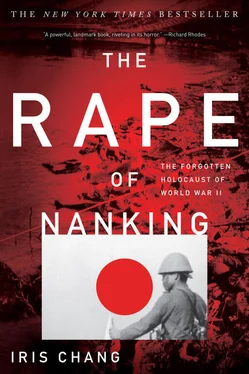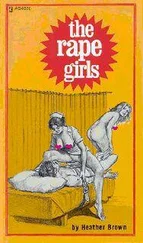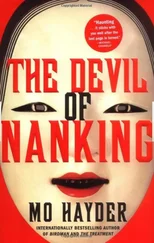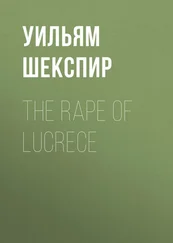Now Mommy weighs only 44 kg—we have grown very meager. The summer comes to an end—what will winter bring? Where will we get fuel, food and work? I am now translating Timperley’s What War Means [a book of documents about the Nanking massacre]. At the moment this brings no money, but perhaps I shall get a better food ration card… All Germans suffer as we do.
We suffer hunger and hunger again—I had nothing to tell, so I didn’t write down anything. In addition to our meager meal we ate acorn flour soup. Mommy collected the acorns secretly in autumn. Now as the provisions come to an end, day after day we ate stinging nettle, the young leaves taste like spinach.
Yesterday my petition to get de-nazified was rejected. Though I saved the lives of 250, 000 Chinese people as the head of the International Committee of the Nanking Safety Zone, my request was refused because I was for a short time the leader of the Ortsgruppenleiter district of the NSDAP in Nanking and a man of my intelligence must not have sought membership of this party. I am going to appeal… If they don’t give me any possibility to work at SSW [the Siemens Schuckert Werke, the name of Rabe’s company] I don’t know what to live on. So I must go on to fight—and I am so tired. At the moment I am questioned every day by the police.
If I had heard of any atrocities of the Nazis in China I wouldn’t have entered the NSDAP and if any of my opinions as a German man had differed with the opinion of the foreigners in Nanking, the English, the Americans, Danes etc. etc. in Nanking wouldn’t have chosen me Chairman of the International Security Committee in Nanking! In Nanking I was the living Buddha for hundreds of thousands of people and here I am a “pariah,” an outcast. Oh, if I could only be cured of my homesickness!
On June the 3rd finally I was de-nazified by the de-nazifying commission of the British Sector in Charlottenburg.
The judgment runs: “Though you were deputy leader of the district of the NSDAP and though after your return to Germany you did not resign membership of the NSDAP [Ursula Reinhardt notes that doing so would have been suicide!] the commission decided to sustain your objection because of your successful humanitarian work in China” etc.
With this, the nerve torture finally came to an end. I was congratulated by many friends and directors of the SSW and given a holiday by the firm to recover from the strain.
Today Mommy is out with one of our Chinese wooden idols to go to Dr. Krebs, who now and then provided us with food and was in love with this idol. A Chinese carpet, a present from Kong, we gave to Mrs. Toepfer for three hundred weights of potatoes…
By 1948 news of Rabe’s plight had reached China. When the Nanking city government announced to its people that Rabe needed help, the response was tremendous, almost reminiscent of the conclusion of Frank Capra’s classic film It’s a Wonderful Life. Within a matter of days the survivors of the massacre raised for Rabe’s support $100 million in Chinese dollars, roughly equivalent at the time to $2,000 in U.S. dollars—no small amount in 1948. In March that year the mayor of Nanking traveled to Switzerland, where he bought large quantities of milk powder, sausages, tea, coffee, beef, butter, and jam to be delivered to Rabe in four huge packages. From June 1948 until the fall of the capital to the Communists, the people of Nanking also mailed Rabe a bundle of food each month to express their heartfelt thanks for his leadership of the International Safety Zone. The Kuomintang government even offered Rabe free housing in China and a lifelong pension if he ever chose to return.
The packages were a godsend for Rabe and his family. In June 1948 the city of Nanking learned just how badly Rabe had needed them when they received from him several letters of profuse thanks, letters that remain to this day in Chinese archives. Before the packages arrived, the family had been collecting wild weeds, which the children would eat with soup. The adults subsisted on barely more than dry bread. But at the time when Rabe wrote his letters to Nanking, even bread had disappeared from the Berlin market, making the packages all the more precious to them. The entire family was grateful for the support of the Nanking people, and Rabe himself wrote that the gesture had restored his faith in life.
Rabe died from an artery stroke in 1950. Before his death, he left behind a written legacy of his work in China: more than two thousand pages of documents on the Rape of Nanking that he had meticulously typed, numbered, bound, and even illustrated; these documents included his and other foreigners’ eyewitness reports, newspaper articles, radio broadcasts, telegrams, and photographs of the atrocities. No doubt Rabe recognized the historical value of this record; perhaps he even predicted its future publication. A decade after his death, Ursula Reinhardt’s mother found the diaries among his papers and offered to give them to her, but the offer came at a bad time: Reinhardt was pregnant and immersed in school examinations; more significantly, she was afraid to read the gruesome contents of the diaries. When she politely declined the offer, John Rabe’s son, Dr. Otto Rabe, inherited the papers instead. With him they remained unknown to the world public and even to German historians for half a century.
There are a number of possible reasons for this secrecy. According to the Reinhardts, John Rabe himself had warned his son not to disclose the existence of the diaries. The treatment he had endured under the Gestapo may very well have had something to do with his caution. But there was a more fundamental reason for the family’s reluctance to advertise the diaries’ existence. Rabe’s previous status as a Nazi raised understandable concerns among some members of his family, and in the immediate postwar years it was simply not politically correct to publish the documents of a Nazi or boast about his accomplishments, however worthy they might have been.
The other Nazis on the Nanking International Safety Zone Committee kept quiet about their records as well. Shortly after the discovery of the Rabe papers, I learned of the existence of another Nazi diary of the Rape of Nanking, entitled “Days of Fate in Nanking” by Christian Kröger. His son, Peter Kröger, had found a copy of the diary in his father’s desk after his death at the age of ninety. It was fortunate, he wrote, that my letter reached him when it did; if it had arrived only a month earlier, he would have told me that his father had possessed only a few newspaper articles on the subject. To this day he wonders why his father never told him about the Rape of Nanking or the diary. I suspect the reason is linked to Rabe’s downfall and persecution in Germany after he sent the report on the great Rape to Hitler. In fact, at the bottom of the diary is a handwritten scrawl, no doubt Kröger’s, that warns: “Contrary to the current opinions of the Hitler government. Consequently I had to be very careful with this.”
It was Ursula Reinhardt who finally told the world about Rabe’s heroic efforts. When my letter reached her, she decided that the diaries merited closer examination. She borrowed the documents from her uncle and steeled herself to read them. The contents were violent beyond her wildest expectations, causing her to reel from descriptions of women gang-raped by Japanese soldiers in the public streets, of Chinese victims burned alive in Nanking. Months later Reinhardt remained so horrified by her grandfather’s report that she did not hesitate to tell a reporter from the Renming Ribao (People’s Daily) her honest opinion of the Nanking massacre, an opinion certain to provoke controversy: that the Japanese torture of their victims in Nanking surpassed even the Nazis in cruelty, and that the Japanese were far worse than Adolf Hitler himself.
Читать дальше











